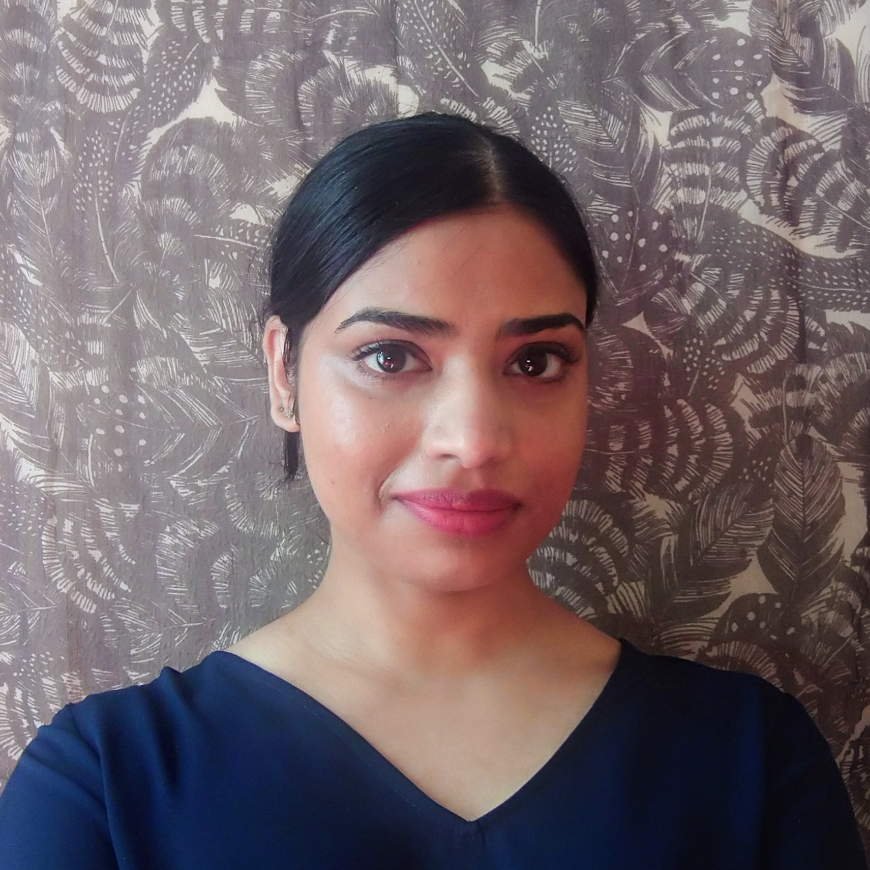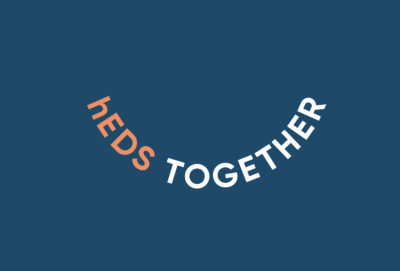Hi! I’m Sabeeha (or Sabs) and I will be interning here at hEDStogether for the next 3 months. I have a personal interest in Ehlers-Danlos syndrome (EDS), and started delving deeper into this professionally during my MSc at Coventry University, and will continue to do so now during my PhD at the University of Warwick. I successfully secured a position on a Doctoral Training Programme with the Midlands Integrative Bioscience Training Partnership (MIBTP), and obtained funding from the Biotechnology and Biological Sciences Research Council (BBSRC) to carry out biomedical research into EDS. Over the next few years of my PhD, I’ll be studying cell adhesion and cell biomechanics in EDS fibroblasts, and I hope this will further our understanding of how these conditions affect connective tissue integrity at a cellular and molecular level.

With this funded programme, I undergo a year of training before going forwards with my research project. Included in this first year is a 3-month professional internship, which Dr Gemma Pearce has very generously allowed me to do at hEDStogether! I approached her and this website for one main reason. Public outreach. Lack of awareness amongst healthcare professionals and wider society has been a huge problem for people with EDS and related conditions, in allowing them to access the right care and support they so vitally need. hEDStogether hopes to help address this problem, by providing a platform to disseminate EDS related research into the public and inform wider society. The aim is to ensure this research fulfils its potential and has the greatest impact in terms of improving patient experiences and care. But this is not just a one-way conversation. What makes hEDStogether really special is the desire to work with patients in driving this research. We want patients to continue to vocalise the kind of research they feel is needed, and to then find practical solutions to address the gaps they are experiencing in their care. Further than that, it is about including all of those that are involved in this process to have a voice as well as those living with the conditions, such as professionals, family members, and charities.
The hEDStogether team have already begun this process, and I was super excited to be a co-creator on this project. It started by exploring ideas about which educational tools might be helpful for maternity staff to support childbearing women with hEDS/HSD, and this included an online public poll that rapidly drew over 1000 responses! This helped to steer the co-creation of various educational tools to support those patients. This included an i-learn module launched by the Royal College of Midwives for their members, a maternity tool that is available for download, and an infomercial, which is still currently in development. To find out more about this, check out this blog and project page.
I didn’t just want my 3 months to be spent learning and gaining new skills, but I wanted my time to be put to good use and to help further a good cause. Hence, why I thought doing my internship at hEDStogether would be perfect, and Gemma has agreed to take me on! (Thank you so much Gemma!).
The public facing elements of this project are still in their infancy, so my 3 months will mostly be spent developing the website. This includes adding all the amazing people involved in these projects onto the “Our Teams” page, and adding completed and future research projects onto the “Projects” page. I’ve mainly spent my first week tinkering on the website, thanks to Ben Clark’s (website and infomercial designer) technical training, and starting to write up projects for future release thanks to Gemma’s guidance and support. I’m also hoping to write more blogs and talk about my future research plans in the lab, which I know many are curious and excited to hear about! Keep an eye on the website, and make sure to follow me and @hEDStogether on twitter so you don’t miss anything!
Thank you for reading, and I’m looking forward to being part of an amazing community of patients, professionals, and researchers determined to help so many. Let’s keep putting our #hEDStogether to co-create research!
Citation: Pezaro, S., Pearce, G., & Magee, P. (2020). New Educational Tools to Support Childbearing With hypermobile Ehlers-Danlos syndrome and Hypermobility Spectrum Disorders. GOLD Online Midwifery Conference. May 5th. https://www.goldlearning.com/ce-library/all-lectures/new-educational-tools-detail

